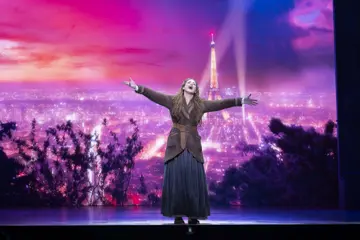
"O, romance, intrigue, deception and love's labour lost! How touching! How dramatic! The tragedy strikes thick." This seems to be the reaction that All My Love tries to inspire through the story of Australian poet Henry Lawson, and his once betrothed Mary Gilmore.
The show is decidedly 'old-worldy' in its format, and relies heavily on both narration and epistolary exchange (the reading out of letters) to tell its story. It's a historical fiction and follows the narrative arc and length of an epic, seeing the characters from their early 20s through until their ripe old age, and across the seas and continents.
This grandiose structure is always ambitious. However, it was at the moment that Henry said of his wife Bertha that "[she] would die if she didn't come back to Australia", and that it was difficult to care if she or anyone else died, that the play had definitively failed to deliver. Swathed in text, the dialogue was heavy without gravitas. The variety of direction ranged only from "wistful" to "more wistful". Except for the first scene, neither Henry nor Mary's personalities were more buoyant than a rock. The unnatural and awkward representation of gold rush era Australia was jarring and left the audience without the capacity to be emotionally affected.
Luckily, writer Anne Brooksbank saw it fit to include some of Henry and Mary's own poetry within the piece. While this was structurally strange and served to stunt the pace as much as the letter reading, narration, and brief and silent physical tableaux that the audience were subject to, the poems are touching.
Don't miss a beat with our FREE daily newsletter
This is a debut Australian show in a fantastic venue. It is with a great deal of wistfulness that we say that its greatest success was to at least transcribe old poetry into the midst of a boring two hours.















